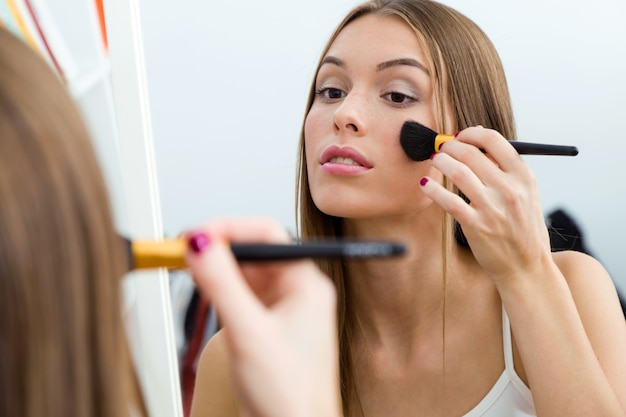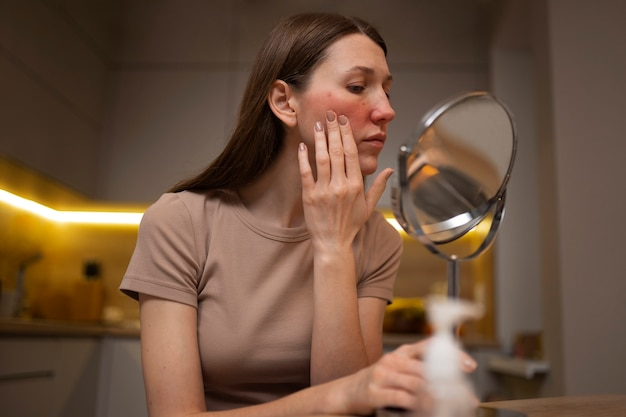Unveiling the Truth About Common Skincare Myths
Skincare is a topic that garners significant attention and interest, with countless products, tips, and advice flooding the market. However, amidst this abundance of information, it’s crucial to separate fact from fiction. Many common skincare myths have gained traction over the years, leading people astray and potentially impacting their skincare routines and overall skin health. In this blog, we aim to unveil the truth about these myths and provide you with accurate and evidence-based information. By debunking these misconceptions, we hope to empower you with the knowledge to make informed decisions and achieve healthier, radiant skin.

Common Skincare Misconceptions
Myth: Expensive products are always better
Truth: Price does not determine the effectiveness of skincare products. While high-end brands may offer luxurious packaging and exotic ingredients, affordable options can be just as effective. It’s important to focus on the active ingredients, formulation, and suitability for your skin type rather than the price tag.
Myth: Natural ingredients are always safe and effective
Truth: While natural ingredients can be beneficial, not all of them are suitable for every skin type. Natural doesn’t always mean safe, and some natural ingredients may even cause allergies or irritations. It’s crucial to research and understand the properties of each ingredient before incorporating them into your skincare routine.
Myth: You should exfoliate daily for smoother skin
Truth: Exfoliation is an essential part of any skincare routine, but overdoing it can do more harm than good. Daily exfoliation can strip away the skin’s natural oils, leading to dryness and irritation. It’s recommended to exfoliate 2-3 times a week, depending on your skin’s sensitivity, to reveal a fresh and radiant complexion.
Busting Skincare Myths: Separating Fact from Fiction
Myth: Oily skin doesn’t need moisturizer
Truth: All skin types, including oily skin, require moisturization. Skipping moisturizer can actually trigger the overproduction of oil as the skin tries to compensate for the lack of hydration. Opt for lightweight, oil-free moisturizers that provide the necessary hydration without clogging the pores.
Myth: Sunscreen is only necessary on sunny days
Truth: Sunscreen is crucial irrespective of the weather conditions. Harmful UV rays can penetrate through clouds and windows, leading to premature aging and an increased risk of skin cancer. Make sunscreen with broad-spectrum protection a daily essential, regardless of the forecast.
Myth: Acne is caused by poor hygiene
Truth: Acne is a multifactorial condition influenced by genetics, hormonal changes, and other internal factors. While maintaining good hygiene is important, excessive washing and scrubbing can actually worsen acne by irritating the skin. Focus on a gentle cleansing routine and seek targeted acne treatments recommended by a dermatologist.
Skincare Misconceptions
Skincare myths often arise from misinformation and lack of proper education. It’s crucial to consult reputable sources, dermatologists, or skincare professionals to gain accurate knowledge about skincare. Your skin is unique, and what works for others may not work for you. Understanding your skin’s needs and choosing products accordingly will help you achieve the best results.
Skincare Myths and Facts
Myth: Expensive products are always more effective.
Truth: Price doesn’t necessarily correlate with the effectiveness of skincare products. While high-end brands may offer luxurious packaging and exclusive ingredients, affordable options can be just as beneficial. Focus on the ingredients and formulation tailored to your skin type rather than the price tag.
Myth: Natural ingredients are always superior.
Fact: While natural ingredients can offer various benefits, not all of them are suitable for everyone. Natural doesn’t automatically mean safe or effective. It’s essential to understand the properties of each ingredient and consider your skin’s individual needs and sensitivities before incorporating them into your skincare routine.
The Truth Behind Skincare Myths: Dispelling Misconceptions
Myth: You must exfoliate daily for flawless skin.
Fact: Exfoliation is undoubtedly beneficial for removing dead skin cells and revealing a brighter complexion. However, exfoliating too frequently can lead to skin irritation and disruption of the skin’s natural barrier. Aim for 2-3 times a week, adjusting according to your skin’s sensitivity, to achieve optimal results without overdoing it.
Myth: Oily skin doesn’t need moisturizer.
Fact: All skin types, including oily skin, require adequate hydration. Skipping moisturizer can lead to dehydration and trigger the skin to produce more oil. Look for lightweight, non-comedogenic moisturizers that provide hydration without clogging the pores.
Debunking Skincare Myths: Separating Fact from Fiction
Myth: Sunscreen is only necessary on sunny days.
Fact: Sunscreen is essential every day, regardless of the weather conditions. Harmful UV rays can penetrate clouds and windows, causing skin damage and increasing the risk of premature aging and skin cancer. Make sunscreen with broad-spectrum protection a vital part of your daily skincare routine.
Myth: Acne is caused by poor hygiene.
Fact: Acne is a complex condition influenced by various factors, including genetics, hormones, and lifestyle. While maintaining good hygiene is important, it’s not the sole cause of acne. Over-washing or harsh scrubbing can actually aggravate the skin and worsen acne. Focus on a gentle cleansing routine and consider targeted treatments recommended by dermatologists.
Popular Skincare Myths: Setting the Record Straight
Myth: You can shrink your pores.
Fact: Pore size is mainly determined by genetics and is not something you can permanently change. However, you can minimize the appearance of pores by keeping them clean, using products containing salicylic acid or retinoids, and maintaining a consistent skincare routine.
Fact-Checking Skincare Myths: Dispelling Misconceptions
Myth: Scrubbing your face vigorously will remove blackheads and acne.
Truth: Scrubbing too harshly can damage the skin’s protective barrier and worsen acne or blackheads. Gentle exfoliation is recommended to remove dead skin cells and unclog pores, but excessive scrubbing can lead to irritation and inflammation. Opt for exfoliating products with fine particles or consider chemical exfoliation with ingredients like AHAs or BHAs.
Myth: Oily skin doesn’t need moisturizer.
Truth: All skin types, including oily skin, require proper hydration. Skipping moisturizer can actually trigger increased oil production as the skin tries to compensate for the lack of moisture. Look for lightweight, oil-free moisturizers that provide hydration without clogging the pores.
Debunking Skincare Myths: Fact-Checking and Clarifying
Myth: Sunscreen is only necessary during the summer or on sunny days.
Truth: Sunscreen should be a daily essential, regardless of the season or weather. Harmful UV rays can penetrate through clouds and windows, leading to skin damage, premature aging, and an increased risk of skin cancer. Use broad-spectrum sunscreen with an appropriate SPF every day, even when indoors or during winter.
Myth: Acne is caused by poor hygiene or eating greasy food.
Truth: Acne is a complex condition influenced by various factors, including hormones, genetics, and lifestyle. While hygiene and diet can play a role, they are not the sole culprits. Gentle cleansing, regular exfoliation, and targeted acne treatments are more effective in managing acne than solely focusing on hygiene or food choices.
Unveiling Skincare Misconceptions: Separating Fact from Fiction
Myth: Skincare products can shrink your pores permanently.
Truth: The size of your pores is mainly determined by genetics and cannot be permanently changed. However, you can minimize their appearance by keeping them clean, using products with salicylic acid or retinoids to unclog them, and maintaining a consistent skincare routine.
By delving into the realm of skincare myths and misconceptions, we have successfully unveiled the truth behind common misunderstandings. Armed with accurate information, you can now navigate the vast landscape of skincare with confidence. Remember, skincare is a science, and relying on evidence-based practices is essential for optimal results. As you continue on your skincare journey, prioritize understanding your skin’s unique needs and consult reputable sources to ensure the advice you receive aligns with proven principles. By debunking these myths, we hope to empower you to make well-informed choices, leading to healthier and more vibrant skin in the long run. Embrace the truth, discard the misconceptions, and enjoy the benefits of a skincare routine rooted in knowledge and authenticity.




